Abellia Anggi Wardani
I was enjoying a glass of iced latte to compensate for Dobo’s heat when the café owner joined me for a chat. Since arriving in the Aru Islands in the Province of Maluku, I have been addicted to drinking this coffee flavoured milk from one of the many warung kopi (coffee house). Lately, I have been trying to drink my coffee in moderation, believing that restricting myself to just one cup a day will keep the addiction away.
Before arriving on Wamar Island where the township of Dobo is located, I spent a week in Ambon City where I had earlier lived for a year whilst undertaking fieldwork for my doctoral program. When I spoke with my friends there about my plan to visit the furthest southeastern part of the Maluku province, one of the many comments was, ‘If Ambon has five Suns, Dobo has nine. Believe me, it’s too hot.’ And it is.
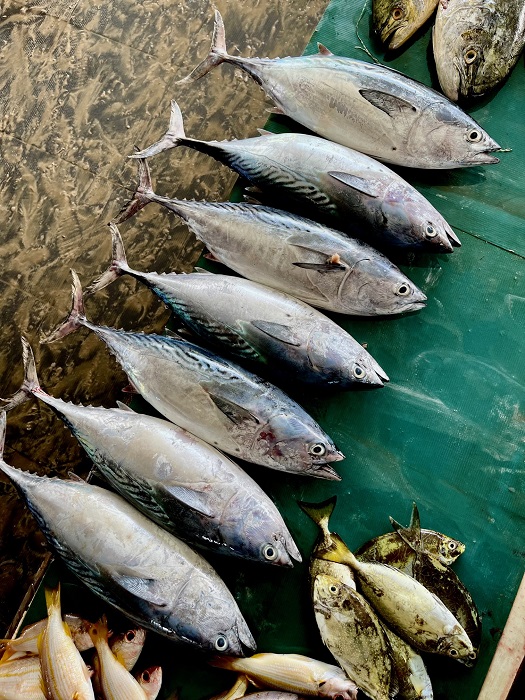
As I sipped my latte, the warung owner and I shared some similar concerns about his hometown. ‘I heard that the government might plan to make Maluku Tenggara (Southeast Maluku) a separate province. Then Dobo will be governed administratively by a mayor. They will probably move Dobo, the capital of Aru Islands Regency, somewhere else,’ he said. To which I replied, ‘By then, Jakarta would have already overtaken Tokyo’s economy’. We laughed together for quite a long time, bitterly.
In the seventeenth and eighteenth centuries Dobo was a hub for global trade, but now it seems to be forgotten and lags behind the rapid global transformations happening elsewhere in Indonesia. Why is a place that was once at the centre of international commerce and scientific discovery now such a sleepy backwater?
I wanted to understand how the people of Dobo saw their place in the world both historically and into the future. My starting point was the legacy of the British naturalist Alfred Wallace, and I set out to find any traces of him. Wallace travelled through the archipelago in 1857, and spent six months in Aru, which mesmerised him. His findings, including the faunal line (known as the Wallace Line) separating the Indonesian islands into two biogeographical parts, are considered comparable with Darwin’s theory of evolution during his stay in the Galápagos Islands.
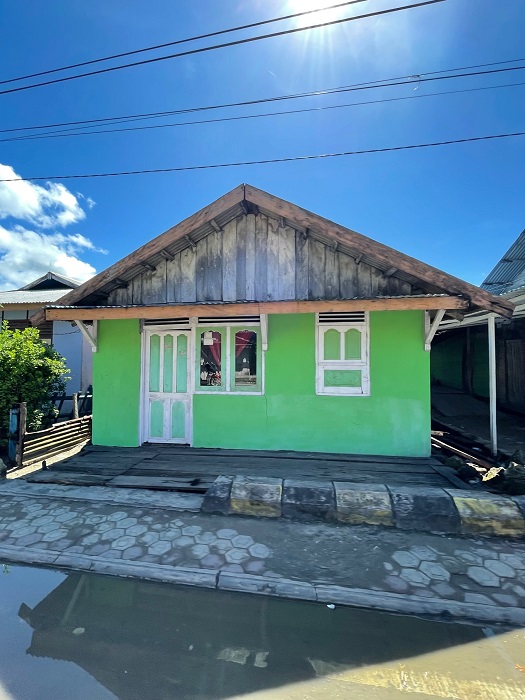
After spending some time looking, the short answer was that there are no traces of Wallace in Dobo. When I mentioned the name, ‘Wallace’, people often looked confused and politely shook their heads. ‘I think I’ve heard about him’, they often said, maybe just to make me feel less awkward, or perhaps because they really had. One of the people to whom I spoke at length on the subject was a high school biology teacher. She spoke more enthusiastically than others when it came to Wallace. She had heard and learned about Wallace’s animal classifications and taught her students a great deal about it at school.
Wallace was mesmerised by the richness of the rare species otherwise found only in the museum collections. He finally saw them in their habitat, alive and kicking. He saw the bird known among the Malay traders as the dead bird (bird of paradise), dancing among the dense trees in the Aru forest at dawn and dusk.
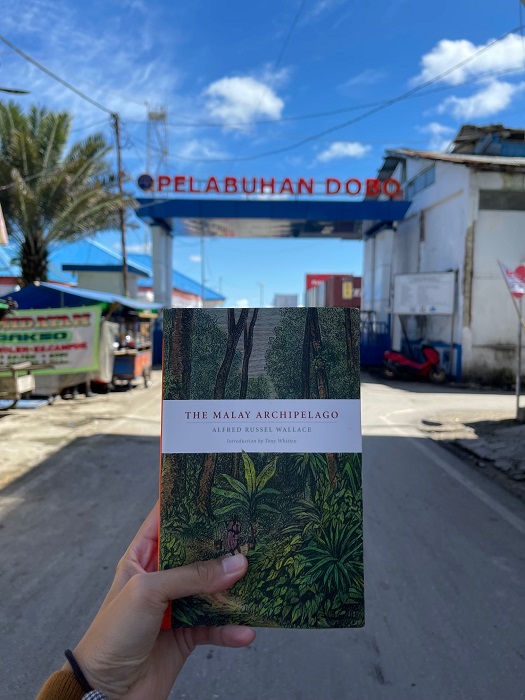
More than 160 years later, Wallace’s sense of surprise that such beauties were so hidden and unknown, still makes sense. Until today, the Aru islands tend to be off the radar even for Ambonese people themselves, let alone other Indonesians. These islands, just as with the bird of paradise, decide to whom they would show their beauty.
Simply getting to the Aru Islands, even to Dobo, can be quite a challenge. The fastest way is by plane. For example, from Jakarta to Ambon Island then to Dobo takes almost half a day’s travel. Another way is by sea, which takes at least five days from Jakarta, before you finally get to see the sparkly pale-blue water of Dobo’s port.
From a trade hub to a ‘kind of’ trade hub
Dobo was a trade hub connecting various trade points in the eastern part of Oost Indie, as the Dutch called it during the colonisation period. It linked Banda, Ambon, Gorom, Tual and Papua and contributed to the fortunes of traders in exotic commodities exclusively found in the east. Although in the past, many praus (wooden boats) embarked from its port, today the economy in Dobo is not as advanced as those of its neighbouring islands, such as Ambon.
The people of Dobo, arguably more culturally diverse than those in Ambon, manage also to somehow remain exclusive. They were open to newcomers, but at the same time a clear distinction is still made between the Aruese people and the people of Aru, with the latter referring to anyone who lives in Aru but who was not born there, or simply people who depend on their livelihood economic activities in the Aru islands. It raises the question of how ‘Aru’ can someone ever be?
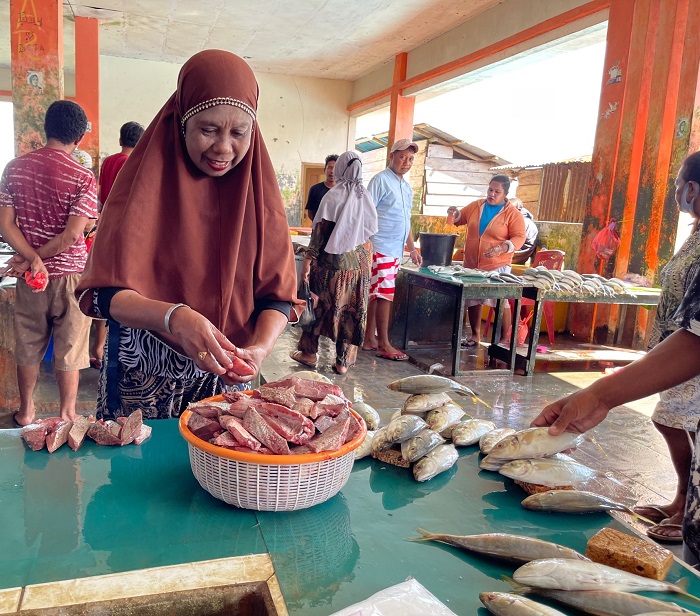
A fish seller of Javanese origin I spoke to, compared Dobo to Singapore, when seafarers and fishers docked their ships after two to three months sailing, longing to step on solid ground. These people would roam around the town, get their hair cut in small barber shops, buy warm comfort food, spend their time ashore in small kedais (food street stalls) located along the street near the port. The seafarers came from diverse regions across Indonesia, although a great number of them were originally from Java. When we enter a kedai where a group of them were enjoying a meal, we could detect many different accents and languages.
With a new fishing port recently built in Blakang Wamar, 10 kilometres away from the old port, the dynamics of trade have shifted. The new location does not accommodate a bustling interaction between the seafarers and the locals and it is deserted, with only three to four kedais along its shore. As an officer who works in this port explained to me, for the seafarers to get to the land they have to get on a smaller boat, then if they wanted to visit the city, they needed to take a motorcycle taxi. All of this would cost them at least Rp150.000 (around 10 dollars) return, and that’s only for the transport.
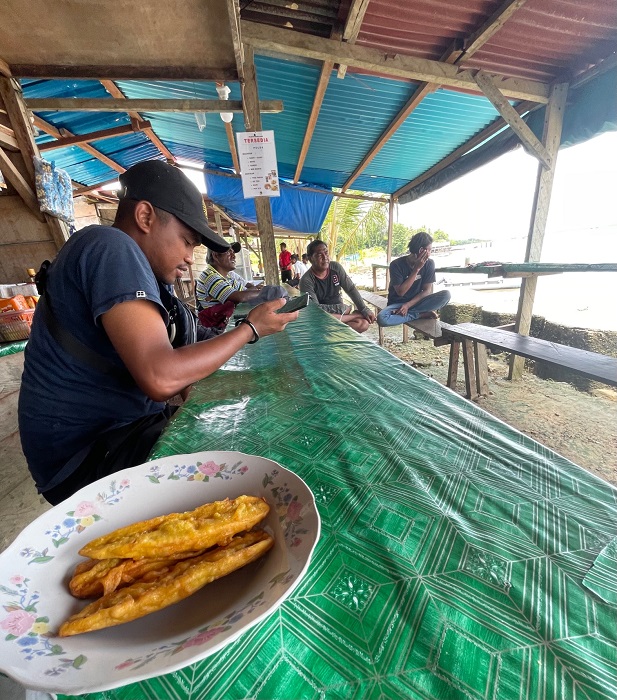
When I stopped by a few times to observe, they observed me back, as a group. Once they had finished checking me out, they would move their gaze to other moving objects. Their earnings could vary from a pittance, to being able to afford to buy land, a car, and build a boarding house to rent out in their respective hometowns.
The (New) Paradise
Despite the large number of seafarers residing temporarily in Dobo, the economy functions at half pace. Where does the money go? I conducted an interview with a chief engineer for a locally-owned boat that specialises in catching sniper fish. He was born into a seafaring family and he portrayed the life at sea, the ups and a lot of downs. I chuckled when he said that (late) Didi Kempot, a Javanese singer who was famous for songs depicting broken hearts, was everyone’s hero.
‘You know, life as a seafarer is really tough; some people chose to be one because they wanted to move on from a failed relationship. Others continued to be one because of a failed relationship. So every time we had the chance to visit a city, we would generously spend our earnings in karaoke places, you know, which put many of us in deep debt and sometimes big troubles.’
One of the most famous karaoke places and nightclubs offering alcohol and other services is called 'New Paradise', a relatively high-end establishment. Spending one entire night there could amount to frittering away one to three months’ worth of a seafarer’s salary . When I asked further, the chief engineer explained the customers’ motivation, ‘They thought they deserved it after such a hardships at sea’.
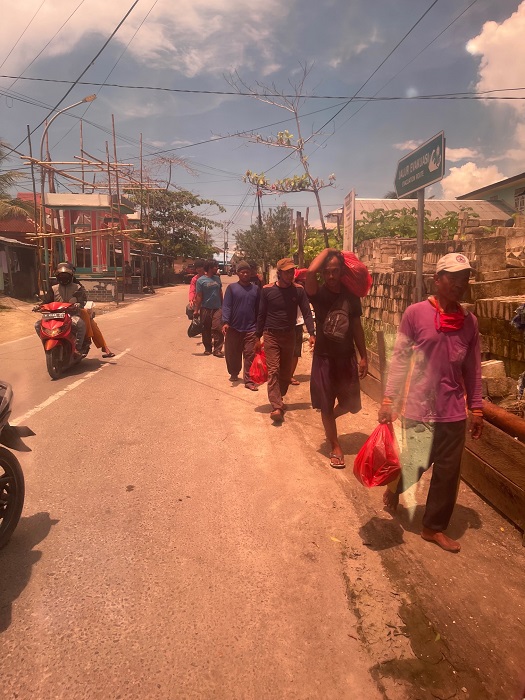
But of course, not everyone wants to sacrifice their sweat and blood to taste the New Paradise of Dobo. So, I kept on pursuing my quest to find the answer to why Dobo does not measure up economically in the way it potentially could.
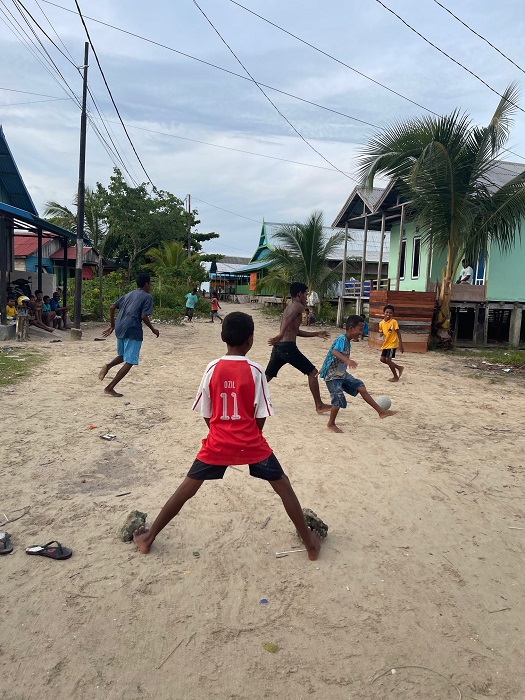
Maybe the answer lies in the people—especially their contentment in embodying the idea of having enough. Don’t get me wrong; they do work hard, but they work hard for today. They will work hard again tomorrow, for tomorrow, and on it goes. Those who try to accumulate enough earnings for at least another generation would criticise such a philosophy as a consequence of being spoiled by the natural resources that the Aru islands offer, which, according to them, simply won’t last forever.
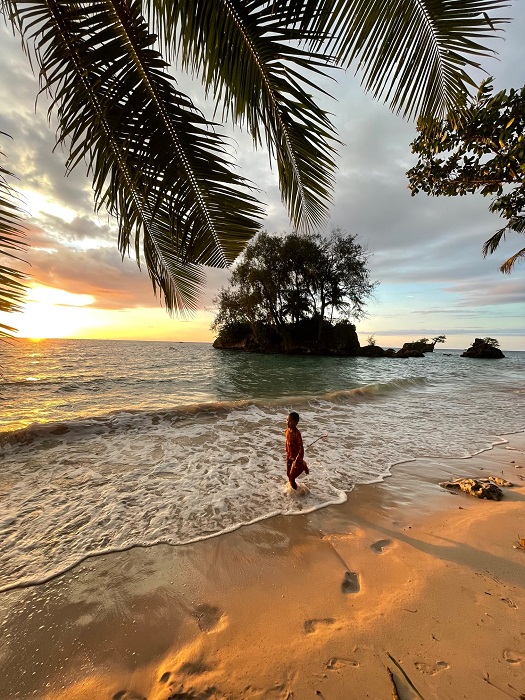
For now, the resources are abundant and the opportunities and money are there, but maybe it is the peace of mind of the people who choose not to rush life, that makes Dobo as it is today. They believe that the abundance will always be there if they are not greedy and don't anger their ancestors. Most of the people in Dobo grow at their own pace and already have all they need. It seems to me, as in life, the people of Dobo approach development of their city in moderation, so as not to get addicted.
Abellia Anggi Wardani (abellia@ui.ac.id) is a lecturer in the Faculty of Humanities, Universitas Indonesia and a Research Director at Knowledge Hub Myanmar – Center for Social Integrity. She has a PhD in Culture Studies from Tilburg University, The Netherlands.